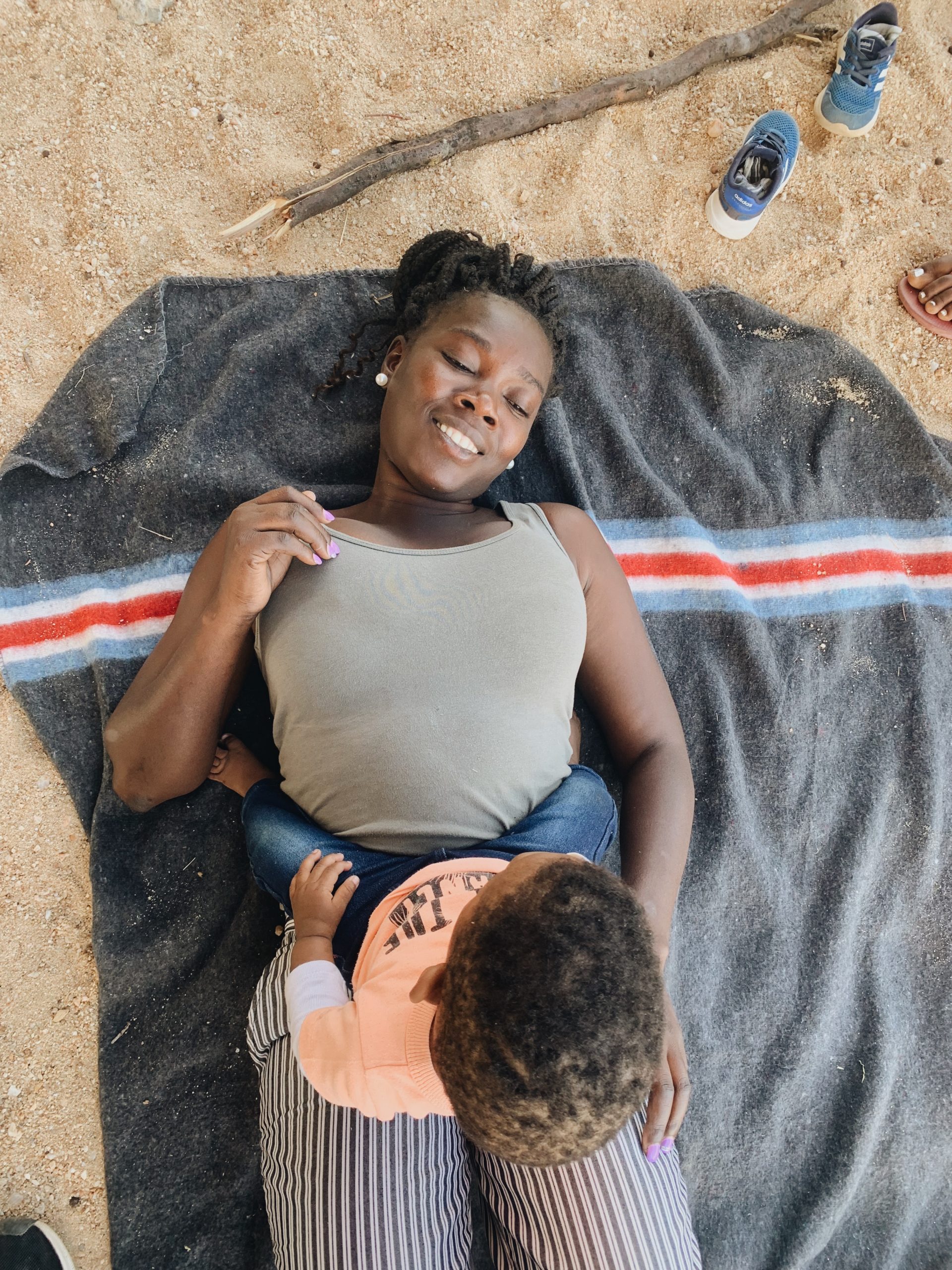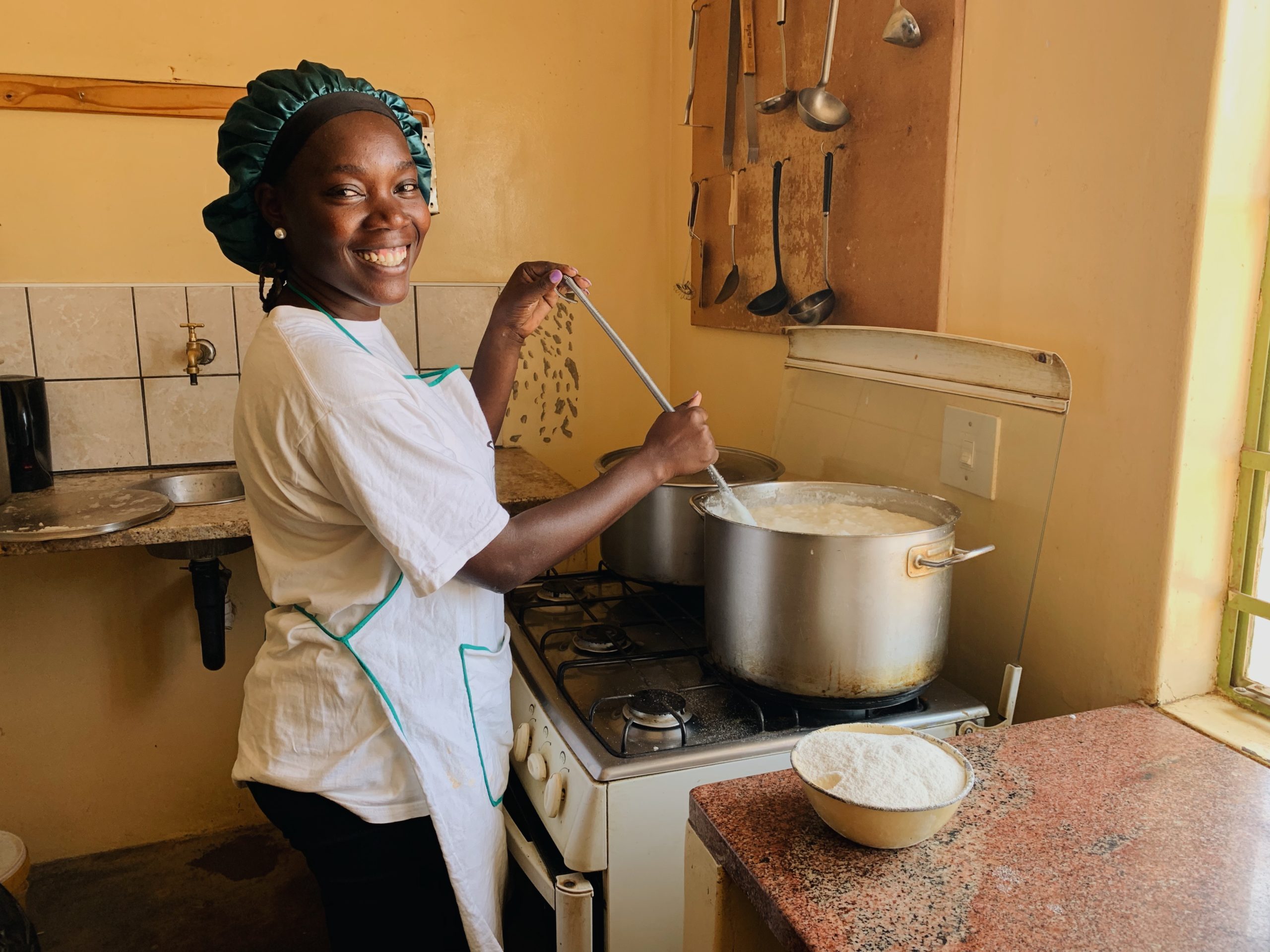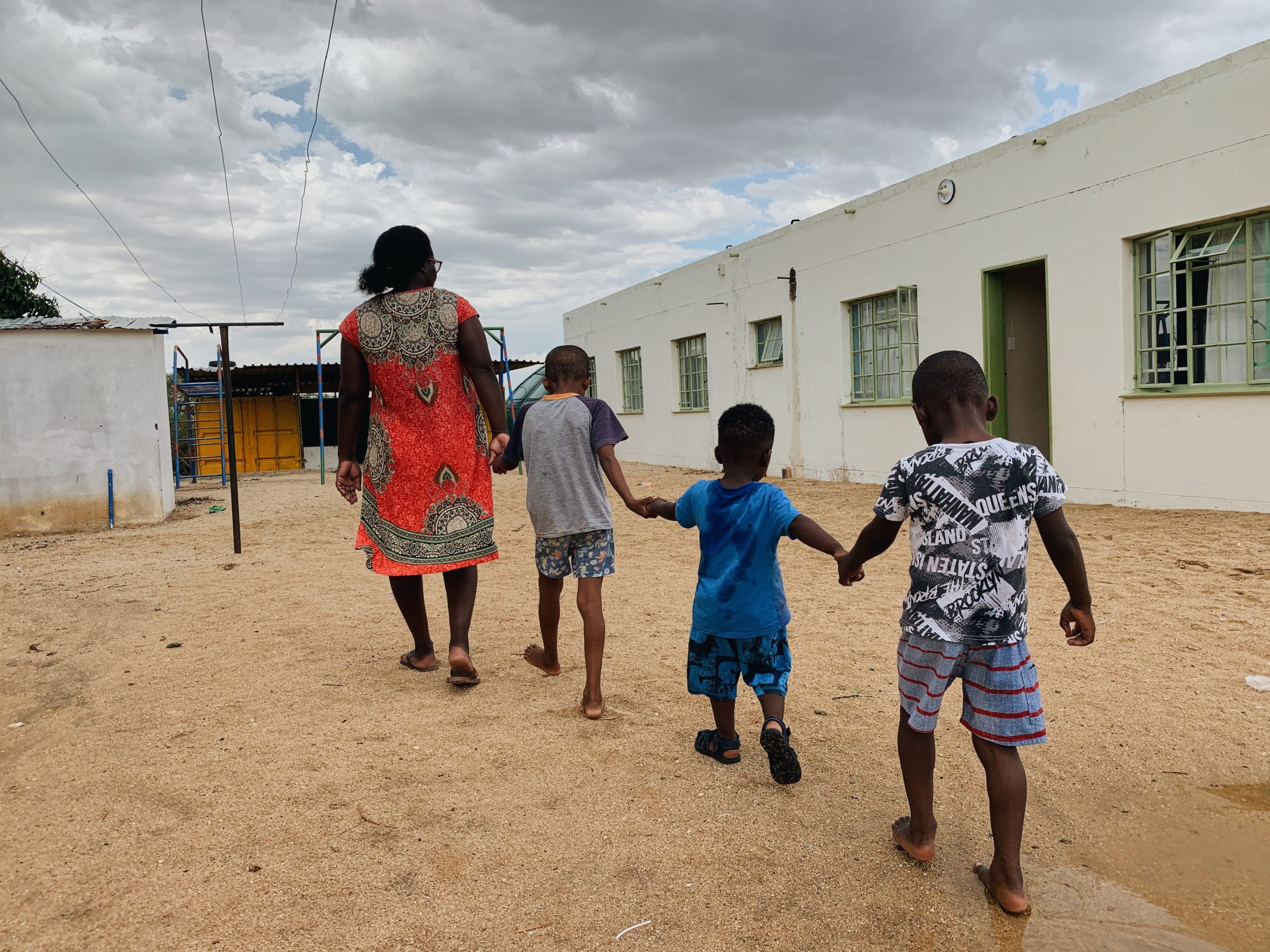Family-based living
The thought behind family-based living is that though the children and teenagers cannot be raised by their parents or other family members for various reasons, they can still be given a home that partly resembles that of a family to grow up in.
The concept of the family-based living means that siblings as well as cousins live in a house together with a house mother and her own children in the Omaruru Children’s Haven. This way, the children and teenagers experience something similar to living in a family with an adult reference person, who is there around the clock. This stability enables them to slowly but surely create deep bonds and to experience reliability, safety and love. It also helps the children and teenagers to trust and to understand that the affection and care given by the house mother lasts, even if there are temporary conflicts.
Within each household the house mother is responsible for the education and upbringing of the children. She organises everyday life and is the contact person for issues concerning the children and teenagers living with her. Additionally to this, she accompanies them to doctors appointments and other official appointments. A volunteer lives in every house to support the house mother in everyday life and is another, temporary contact for the children and teenagers, which lightens the house mothers load somewhat.
Everyday life is therefore primarily lived within one household. The children and teenagers learn how to take responsibility in completing their daily chores and in supporting each other. The meals are, whenever possible, prepared together and then eaten simultaneously. The afternoon Study Time , in which homework is done and general knowledge is depthened, takes place within the own household as well.
However, free-time is spent together with the children and teenagers of the other households, to encourage the development of friendships outside of the own household.



